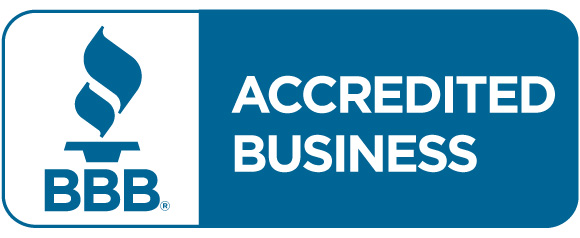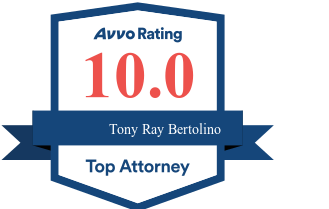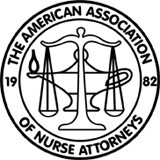At Bertolino LLP, we understand how serious the consequences of a formal complaint can be for professional accountants. We work hard for licensed CPAs throughout Texas, which is why so many licensed professionals trust us to help them get their complaints dismissed. We have a strong track record for success as Texas professional license defense lawyers.
What Is CPA/Tax License Defense?
An experienced attorney can help defend certified public accountants in situations involving a simple mistake or circumstance that leads to a complex dispute. A CPA/tax license defense attorney can present defenses before the Board of Accountancy of Texas for a multitude of disciplinary situations including, but not limited to:
- Breach of client confidentiality
- Criminal charges or convictions
- Discipline measures from other licensing bodies like FINRA
- Failure to properly keep client files
- Fee discrepancies
- Gross negligence
- Practicing with a suspended or unapproved license
- Violations with conflicts
In addition to state board agencies, the Office of Professional Responsibility (OPR) ensures the goal of the IRS by supporting its enforcement of tax laws. The OPR upholds licensing regulation measures by guaranteeing that tax professionals adhere to the standards of tax practice and the rules that govern these standards as outlined in Circular 230 (the “rules of engagement” for tax practice).
The defense of CPA and tax preparers’ licenses can involve both state and federal agencies who govern the practice of these professions and the issuance of these licenses.
How a CPA/Tax License Defense Attorney Can Help You
An attorney can help with all stages of the disciplinary process, including:
- Compliance issues
- Guidance into the board’s proceeding on ethics and rules of conduct
- Investigations
- Licensing denial
- Representation at hearings with administrative agencies, as well the board and licensing bodies
- Responding to the initial complaint or peer review process
- Seeking a resolution to limit the sanctions and penalties
- Settlement discussions
A CPA/tax license defense attorney will know the process from the initial complaint to the resolution of the accusation when your license is in question. An attorney’s top priority will be to preserve their client’s reputation and license while ensuring their ability to practice.


Do You Have to Retain a Lawyer?
There is no requirement to retain a lawyer in this situation, but why would you take the chance when your career is at stake? The experienced CPA defense attorneys at Bertolino LLP have an office in Austin and are ready to help you through this challenging process. We have a proven track record of success before the professional boards in the state of Texas.
Click to contact our Texas Professional License Defense Lawyers today
Methods of Detecting Grounds for Discipline
As granted by the Public Accountancy Act §901.501, the Board of Public Accountancy has the ability to reprimand, probate, suspend, or revoke a CPA or Tax preparer’s license for fraud, felony convictions, violations of subchapter J, bad faith conduct, or violating the rules of professional conduct.
There are two methods that the Texas State Board of Public Accountancy deploys to pinpoint areas of disciplinary issues. These are:
- The complaint and investigation process
- The peer review process
If you have been involved in any of the aforementioned situations, it is likely a complaint will be filed against you which will detail the possible violation(s) you committed. You will receive a letter from either the Texas Society of Certified Public Accountants or the American Institute of CPAs. After a complaint has been filed, an investigation will commence to look into the allegations. At this point, it is highly recommended that you consult with a CPA/Tax license defense attorney.
Complete a Case Evaluation form now
The Peer Review Process
The peer review process is an internal process separate from the complaint and investigation processes, which is generally centralized around outside individuals making the allegations. Pursuant to the Public Accountancy Act §901.159, a peer review program is initiated to monitor and audit a CPA’s work product to ensure compliance with accounting standards and regulations.
After the complaint and investigation process or peer review process, it is likely that the Board of Public Accountancy will find grounds for discipline. Should this be the case, they will file formal charges that comply with §901.509 of the Public Accountancy Act.
Notice of Defense
An individual under review must submit a notice of defense. The notice is required by the licensee and, in some cases, an applicant, in order to uphold their right to a hearing (§ 901.508) after they have received an accusation or denial letter. In most cases, barring any extenuating circumstances, a licensee has fifteen (15) days from the time of the denial or accusation letter (note: this is the day it was sent, NOT the day it was received) to file a notice of defense.
If an attorney has not already been involved in the process, you should consult with one before filing the notice. In order to meet the deadline, you should consult with an attorney as soon as you become aware of any accusations or investigations.
If a licensee does not file a notice of defense within the 15-day time frame, the governing body will place the licensee in default. Once a case has gone into default, the board will impose strict sanctions which will either result in a revocation of their license or a denial of reinstatement.
The Challenges You May Face with Your CPA License
Once a complaint is determined to be valid by the Texas State Board of Public Accountancy (BPA), an investigative file is opened by the Enforcement Division and you have 30 days to respond. Once you have provided material in your own defense, a committee will review the case and make a recommendation concerning how to proceed. This committee will try to reach an agreed consent order (ACO) with you.
If a resolution cannot be reached through this group, the complaint will then be prosecuted by an administrative law judge (ALJ) at the State Office of Administrative Hearings (SOAH). The ALJ will then offer a Proposal for Decision, which can be adopted, changed, or rejected by the Board. Possible penalties for an accountant found liable in a complaint range from a reprimand to a suspension to revocation of your CPA license.
Possible Penalties for a License Violation
Should your case go to a hearing and the board finds that you have committed a violation against the professional rules of conduct, committed a fraud or felony, or any other egregious act prohibited by the licensing body, they can take a number of disciplinary actions. The severity of act will equate to the severity of the penalty.
The penalties that the Broad of Public Accountancy can impose include:
- Reprimand: Receiving an order of reprimand is the lowest form of discipline the board will assign. This involves acknowledgment of the misconduct in the form of a written letter outlining what rules you have violated.
- Corrective Action: Next after reprimand is the board taking a measure of corrective action. This involves the licensee working with the board to correct the misconduct that occurred.
- Additional Education: In certain circumstances, the licensee may not have maintained their education and continuing education requirements, which led to the accusations. In this case, the board will require that they receive additional education before continuing their practice including, if applicable, treatment for substance abuse and related courses.
- Probation: As the penalties become more severe, the board may choose to put a licensee on probation to allow them the possibility of reinstatement, should their conduct improve or they take measures to correct the wrongdoings. Probation can turn to suspension if corrective measures are not taken.
- Limiting the Scope of Your Practice: If the violations were involved with one client or with a particular area of your practice, the board can prevent you from practicing in that area to avoid future violations.
- Suspension: This is one of the most severe implications of the disciplinary board can issue. A suspension is typically indefinite and will require action on the licensee and typically a defense attorney.
- Revocation of your license: The most severe penalty is a revocation of your license all together. If the violation was severe, the board has the option to revoke your license and you can no longer practice.
Call or text (512) 476-5757 or complete a Case Evaluation form














